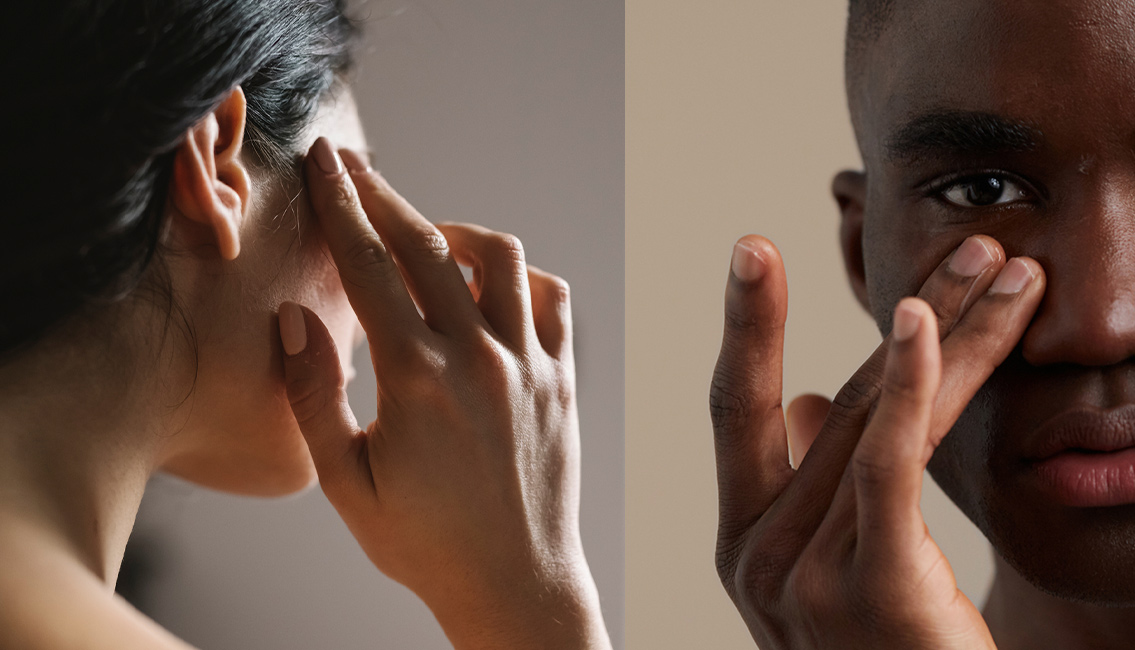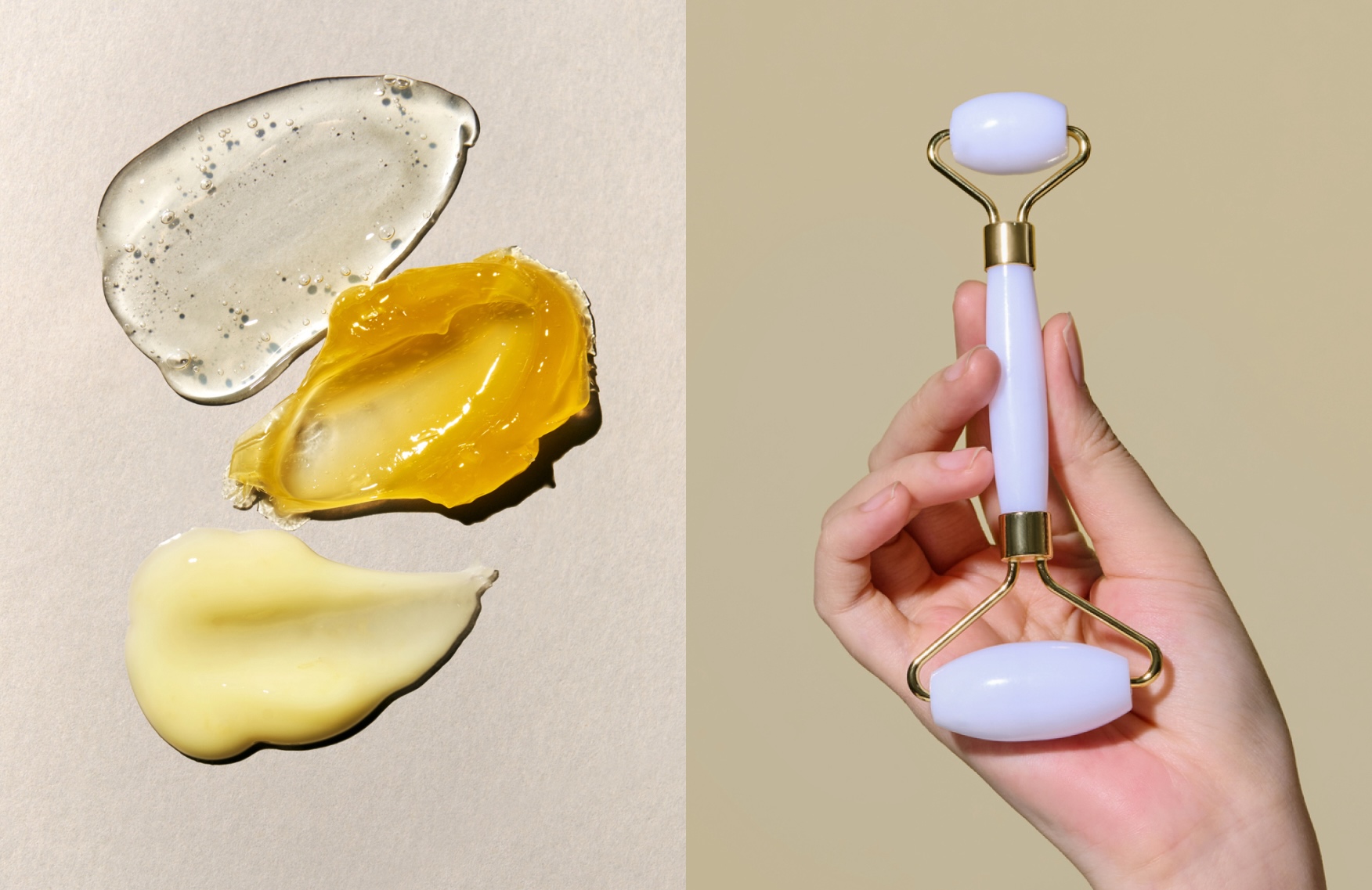Dispatches from the hot-topic field of psychodermatology, from one of the best in the biz

Edited and updated February, 2023
As a leading expert in psychodermatology, Dr. John Koo has a remarkable way of unpacking the complexities of this burgeoning field, which serves patients by connecting mental health with skin conditions. The Harvard-educated MD is board-certified in both dermatology and psychiatry, often traveling the world to give lectures on the specialty. He’s also a professor in the dermatology department at UCSF—good news is you don’t need to be a student there to get the latest in this hot-topic field from Dr. Koo. Here, he breaks down the latest, including some everyday advice for these stressful times.
Why psychodermatology and why now:
Dr. Koo believes psychodermatology has popular appeal because skin is completely visible, so you don’t necessarily need to be a trained professional to appreciate what’s happening. “If I show you a picture of terrible psoriasis, or a chronically depressed person who’s badly excoriating their skin, you can already imagine the impact this would have,” Dr. Koo explains. “It’s relatively easy to embrace the idea that the mind is affecting the skin, or vice versa. Whereas if I start talking about molecular biology and RNA, that’s a lot more difficult to digest.”
Additionally, he says the public—which has already embraced so many aspects of wellness—will become increasingly attuned to the need for psychodermatology because “dermatologists are not trained to know how to connect with people who may be delusional or are otherwise suffering from mental health conditions, and vice versa for psychiatrists.”
Lastly, societal changes have helped raise the profile of psychodermatology. When Dr. Koo started in dermatology a generation ago, people didn’t respect skin disease the way they respected other conditions like hypertension or gallstones. Now there’s an appreciation that skin conditions can devastate lives. “People with whole-body psoriasis didn’t feel as valued, even by insurance companies,” he explains. “Back then, if you had arthritis in your little pinky, you’d get all sorts of medicines approved, but if you had an entire body covered in psoriasis, insurance wouldn’t cover it well. The thinking was, you’re not going to die from it, just learn to live with it. In the recent past, that’s changed—the government, the insurance payers, the public are now more aware of the serious impact skin can have on quality of life, not just on whether a condition is going to kill you.”
These days, skincare shelves are overflowing with therapeutic treatments addressing all types of serious—and potentially mental health-affecting—conditions like psoriasis, eczema and cystic acne using the latest technology and ingredients as demanded by consumers who are more skincare savvy than ever before.
How the mind affects skin, and vice versa, generally falls into four categories:
#1: Skin and diseases of the skin are responsive to emotional state. This is especially true when stress is involved, which can make everything from acne to psoriasis worse. “In fact, anything that is inflammatory and chronic seems to be worsened by stress,” Dr. Koo says.
#2: Even those without skin disease can end up with damaged skin—because it’s self-induced. These are often people with psychiatric concerns, such as anxiety, depression or psychosis. “For example, people with obsessive compulsive disorder may end up washing their hands 40, 50 times a day,” Dr. Koo explains, “and they end up with hand eczema.”
#3: When people have skin disease, their quality of life suffers, since everyone can see it. Teenagers may refuse to go to school when acne gets severe. Those who have diseases such as vitiligo, which others still consider “disfiguring,” can have their employability affected. “I’ve heard people say, if you’re a salesperson, what if everyone is worried about what’s going on with your skin and not listening to your sales pitch,” Dr. Koo notes.
#4: In a newer, more specialized area of psychodermatology, some can experience strange sensations on skin, such as crawling, biting and stinging. “This problem isn’t very well known by the public yet,” Dr. Koo says. “Neurologists often can’t figure out what’s going on, and they turn the patients over to dermatologists, even though there’s nothing to see on the skin. But a lot of times these patients respond better to neurological or psychiatric medications than what dermatologists usually prescribe.”
What you can do in these stressful times—Dr. Koo’s personal, everyday advice:
As a board-certified psychiatrist (and dermatologist), Dr. Koo’s first instinct is to remind people that if you have a serious or chronic condition involving anxiety, depression or the like, then seeking a mental health practitioner is the valid approach. However, when pressed, he serves up some everyday advice from a personal POV that’s too good not to share—especially during a pandemic when even professionals like himself need coping mechanisms.
“There are two kinds of challenges that Covid exacerbates,” Dr. Koo starts. “The first is real-world concerns like running out of money or being unemployed, and I can’t do justice there because that’s all individual. The other is how our day-to-day is disrupted, how the things we love doing may no longer be possible. So how do you cope?”
“I can only explain how I cope. There’s a bestseller called [‘Sapiens: A Brief History of Humankind], the message of the book is that even though all of us believe in our way of life, most everything is likely just a story we tell ourselves, apart from the laws of science. If you recognize that, then it should be easier to change the story. Certain stories that kept us going before—like, I love to travel, I’m a foodie—are just not feasible anymore. My story before Covid was that I was passionate about giving lectures, flying to Europe, Asia. But I recognize that’s a story, not an absolute. So now I have to change my story. What can I be passionate about that I can do at home? I thought, I’m 66, but maybe I’d like to be like Bruce Lee and be more fit. That’s totally ridiculous, but it doesn’t matter because it’s just a story. And if Bruce Lee is the only thing that gets me moving, then so be it!”
The views expressed in this article do not necessarily represent the views of Murad, and are for informational purposes only, even if the advice of physicians and medical practitioners are included. This article is not a substitute for professional medical advice, diagnosis or treatment, and should not be considered specific medical advice.


